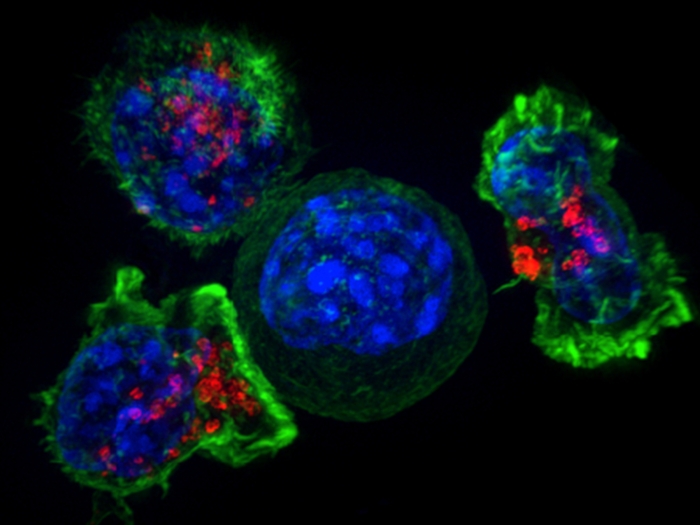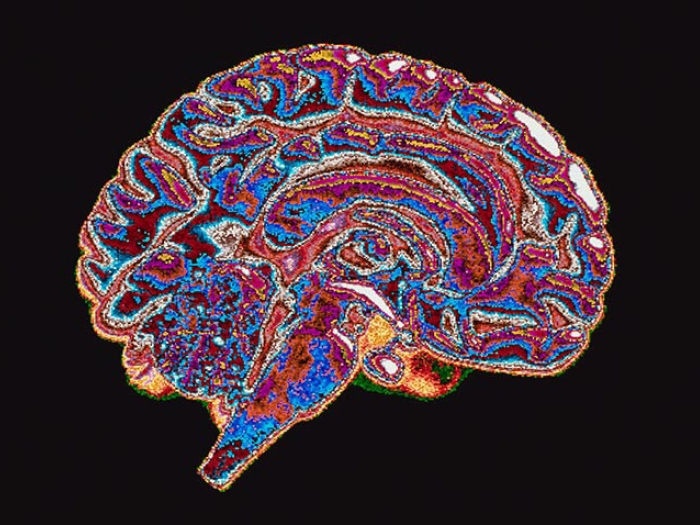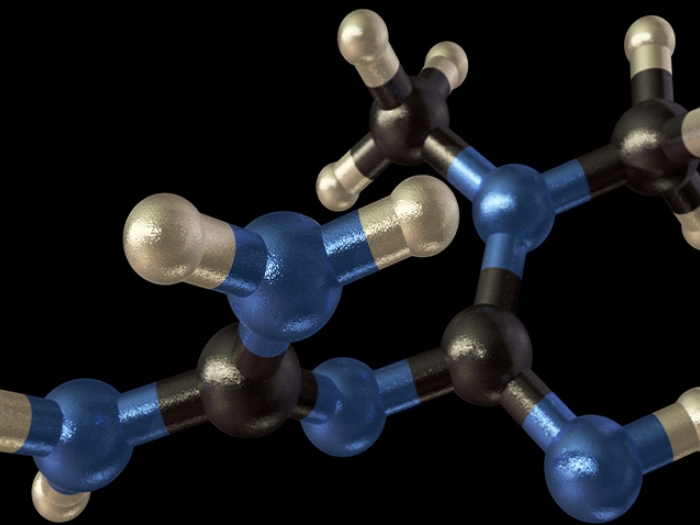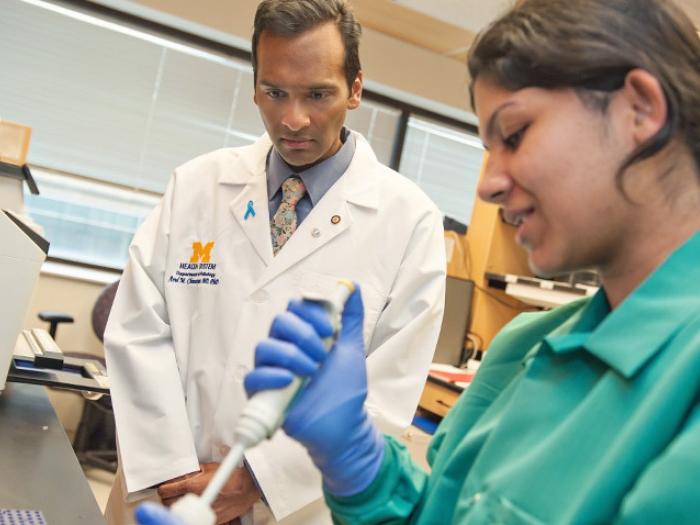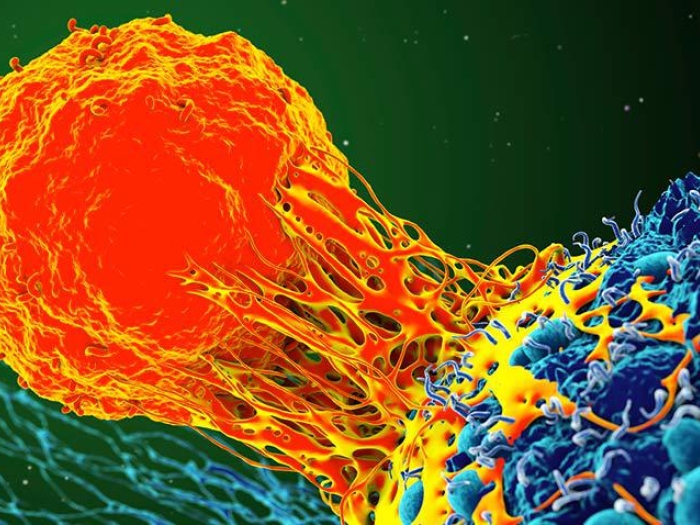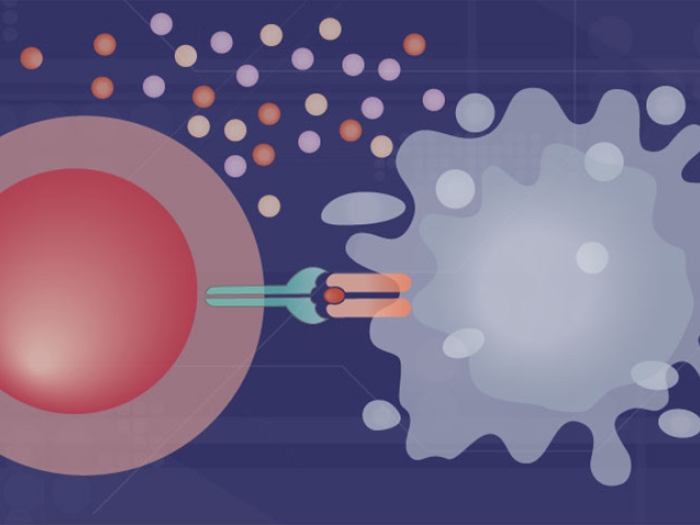Throughout the pandemic, researchers have continued to push the boundaries of cancer prevention, diagnosis and treatment.
5:00 AM
Author |

Despite the impacts of the COVID-19 pandemic, researchers at the University of Michigan Rogel Cancer Center continued to make meaningful strides against cancer in 2020.
LISTEN UP: Add the new Michigan Medicine News Break to your Alexa-enabled device, or subscribe to our daily updates on iTunes, Google Play and Stitcher.
"Cancer didn't get put on pause this year and neither did we," says Director Eric Fearon, M.D., Ph.D., Emanuel N. Maisel Professor of Oncology at Michigan Medicine. "And while the pandemic did necessitate some changes to keep our faculty, staff and trainees safe while conducting research, I couldn't be more proud of the contributions we continue to make toward understanding, diagnosing and treating cancer."
The cancer center is home to more than 300 faculty members drawn from nearly 60 academic departments across nine schools and colleges at U-M. Their research is frequently published in leading national and international cancer and medical journals.
This year, some researchers turned their attention to addressing COVID's direct impact on cancer patients. Others worked to develop new drugs or make immunotherapy treatments work better. Physicians and generous patients contributed to the forward progress of new medicines through clinical trials. Bench scientists deepened our understanding of cancer's pernicious biology. And still others worked to understand cancer at the population level and to address racial and ethnic disparities.
MORE FROM MICHIGAN: Sign up for our weekly newsletter
Collectively, Rogel Cancer Center scientists' work takes aim at breast cancer, prostate cancer, pancreatic cancer, blood cancer and brain cancer, to name just a few types — as well as cancer's spread throughout the body.
Among hundreds of discoveries big and small, these were the cancer center's top stories of 2020:
1. New Map of the Immune Landscape in Pancreatic Cancer Could Guide Future Personalized Immunotherapy Treatments: The analysis highlights the diversity of immune response in pancreatic cancer, and points toward the need for treatments tailored to individual patients.
2. New Connections Reveal How Cancer Evades the Immune System: The study shows tumor cells eat up a key amino acid, depriving immune cells of it, which prevents them from fighting off cancer.
3. 'The Immense Burden of Cancer is Not Shouldered Equally': We contributed to a first-ever report describing how overall gains against cancer are not benefiting some racial and ethnic groups – and how COVID-19 may be making it worse.
4. App Calculates Risk of Delaying Cancer Care During Pandemic: The University of Michigan's OncCOVID app draws on global cancer and coronavirus data to create an individualized mortality risk assessment for receiving immediate versus delayed cancer treatment.
Cancer didn't get put on pause this year and neither did we.Eric R. Fearon, MD, PhD
5. How Hereditary Genetic Testing Results Impact Breast Cancer Treatment: A study finds breast cancer patients with an inherited genetic mutation don't always get treatment that follows guidelines.
6. Anti-Leukemia Compound Induces Complete Remission in Mouse Models: A Phase I clinical trial using a structurally related analog of the compound is currently enrolling patients.
7. Study Suggests New Potential Approach Against Fatal Childhood Brain Cancer: In mouse models of DIPG, simultaneously attacking two metabolic pathways led to significant improvements in survival.
8. Study Suggests New Approach to Improve Radiation Therapy Resistance in Glioblastoma: Laboratory research paves the way for a clinical trial to see if an FDA-approved drug used to prevent organ transplant rejection can work against these aggressive brain tumors.
9. This MicroRNA Might Help Detect, Treat Ovarian Cancer: In cell and mouse models, miR181a showed promise as a biomarker for early stage ovarian cancer and may help make immunotherapy treatment more effective.
10. Clinical Trial Offers Clues About Why Some Metastatic Prostate Cancers Don't Respond to Anti-Androgen Therapy: Clinical Trial Offers Clues About Why Some Metastatic Prostate Cancers Don't Respond to Anti-Androgen Therapy: Transcriptional profiling identifies a gene program active in metastatic prostate cancers that failed to respond to enzalutamide treatment.
A full archive of cancer-related news stories from the year can be found on the Rogel Cancer Center website.

Explore a variety of health care news & stories by visiting the Health Lab home page for more articles.

Department of Communication at Michigan Medicine
Want top health & research news weekly? Sign up for Health Lab’s newsletters today!
